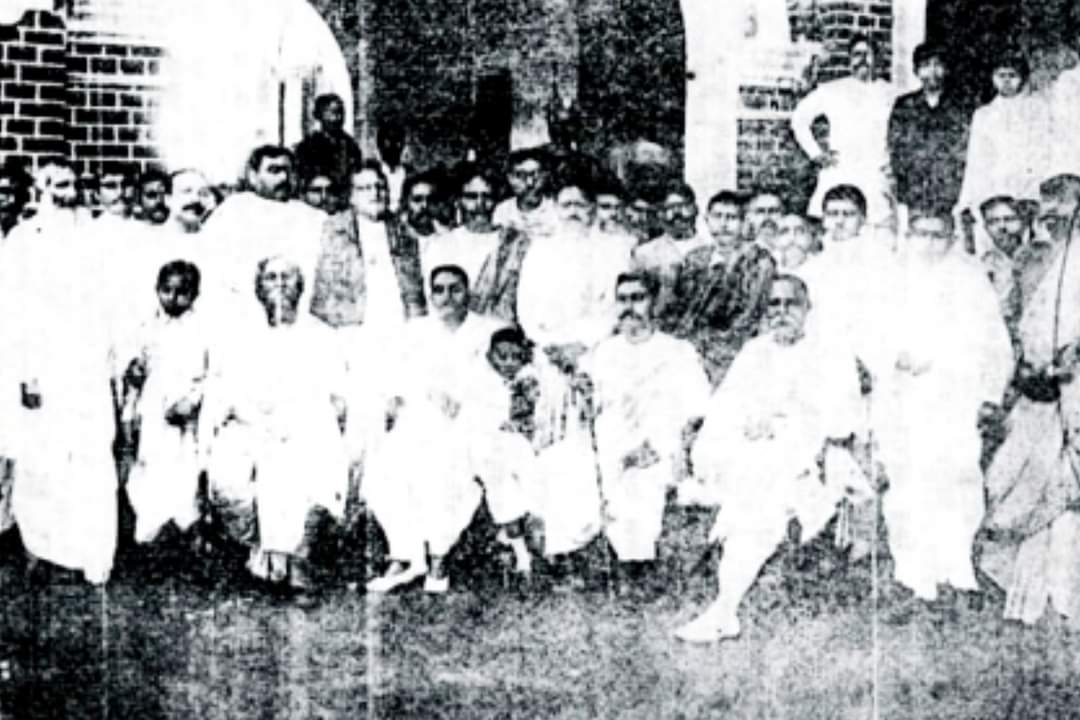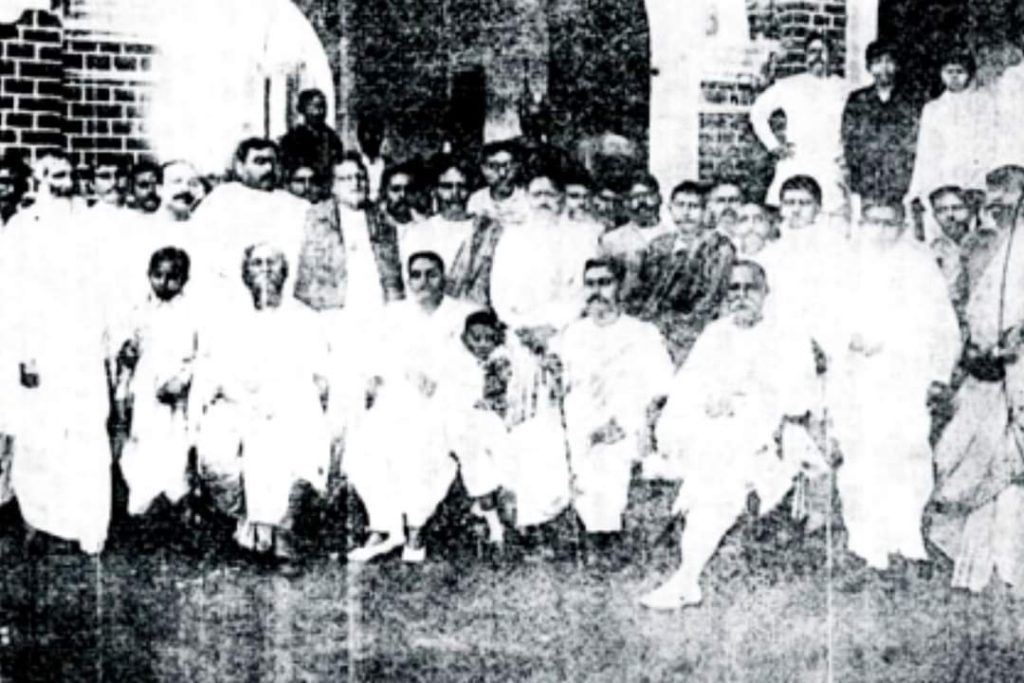The names of Rabindranath and Pabna are closely associated with each other. The name of this region has come up repeatedly in many writings of the Universal poet. Even in an article, the world poet expressed his desire to settle in this district. In the words of the Universal poet- ‘I’ll have a house and a car in Pabna. That’s why I’m buying bricks. And I’ll also buy a corrugated still sheet to cover upon the kitchen. He embraced the serene nature of Pabna, it’s people and public life. The uneducated boatman on the Padma river sings, : ‘Why are you sad young girl? I’ll buy you something precious from Pabna .’ Through these two lines, he has presented a picture of rural life in Pabna. He wrote various short stories, poems, plays, essays and letters from the soil and people here. Not only that, but also he has repeatedly rushed to this wilderness with that love.
Rabindranath Tagore (1861-1941) had an inseparable relationship with East Bengal or Pabna. He visited Pabna many times on the occasion of zamindari supervision (1890-1897), provincial conference of Congress (1908), North Bengal Literary conference (1914) etc. Day after day, month after month, he spent in the countryside here.
On 22 and 23 February 1914 (Sunday and Monday), the seventh session of the two-day ‘North Bengal literary conference’ was held in Pabna city. Nobel laureate poet Rabindranath Tagore was felicitated at the conference. At the request of Barrister Ashutosh Chowdhury, president of the reception committee of the conference, and Maharaja Jagadindranath Roy of Natore, Rabindranath Tagore agreed to the reception. Rabindra biographer Prashanta Pal writes: “In this conference, the president of the reception committee was Ashutosh Chowdhury and the original president was Maharaja Jagadindranath Roy of Natore – he had to agree to go to Pabna at the time of two friends. On the fixed date, Rabindranath along with Pramatha Chowdhury and Manilal Gangopadhyay reached Pabna by boat on Padma river. After coming to Pabna, he first took hospitality at ‘Shitalai House’, the house of Shitalai zamindar Jogendranath Maitra. At the end of the first day’s program, the poet spent the night at the Shitalai zamindar house.
The conference was held at 2 pm on the premises of Pabna Institution. Maharaja Jagadindranath Roy of Natore presided over the meeting. After that, the President’s address, president-election, president’s speech, etc. were held one by one. Rabindranath took the seat on the right side of the president. At one stage, with the permission of the president, Kishori Mohan Roy, editor of ‘Suraj’, presented a proposal on the occasion of Rabindranath’s Nobel Prize. Professor Panchanan Niyogi seconded the proposal.
The speech that Rabindranath read out in response to the reception at Pabna literary conference was published in the Baishakh, 1321 issue of ‘Manasi’. On 23 February 1914 (Monday), Rabindranath and other guests visited the newly constructed building of Pabna College (now Government Edward College). It is to be noted that today’s Government Edward College started its journey in a room of Pabna Institution, the center of the conference. After the second day’s session, the meeting started at 2 pm and ended at 5 pm. The meeting had to end quickly as there was a park-meeting after 5 p.m. After reading out the articles in the afternoon meeting, Akshay Kumar Maitrya requested Rabindranath to give some advice on the management of literary conferences.
After receiving the reception at the Pabna Literary Conference, Rabindranath returned to Shilaidaha on 25 February 1914 and wrote to Thomson: “I was dragged to Pabna to take part in a litetary conference. It is over now and I am allowed to come back to my retreat where I am hiding at present.’
There are many links between Pabna and Rabindranath. At the age of 29, firstly he came to Shajadpur in Pabna district in 1890 to supervise the zamindari and lived there regularly and irregularly till 1897. He presided over the provincial conference of the Congress held at Pabna in 1908. In 1914, Rabindranath Tagore was given a reception at the ‘North Bengal Literary conference’ held in Pabna. Apart from this, Rabindranath came to Pabna many times due to his kinship with the famous Chowdhury family of Haripur in Pabna. His elder Satyendranath Tagore’s daughter Indira Devi was married to Pramatha Chowdhury, a son of Pabna. Rabindranath’s sister Pratibha Devi was married to Barrister Ashutosh Chowdhury, elder brother of Pramatha Chowdhury. The nature and people of Pabna, as well as the rivers like Padma, Jamuna, Ichamati, Baral, Hurasagar, Nagor, etc., were connected to his life. Above all, the reception of Rabindranath Tagore in Pabna was a very significant and memorable event. Through which the identity of Pabna in Bengali literature gained a new dimension.
Source: Report, Bangladesh Pratidin.
Translated by : Ananyo Haider, European University of Bangladesh.


